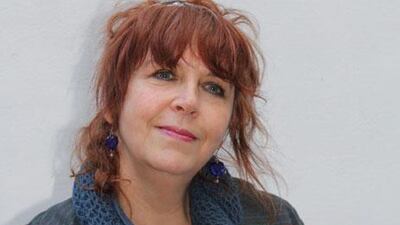Back in February, I caught up with the author Carol Birch in her UK hometown of Lancaster. It's unfair to say she'd been a struggling author - her 2003 novel Turn Again Home made the Booker longlist - but her 11th book, Jamrach's Menagerie, seemed like a turning point, an exotic, seafaring Victorian adventure featuring tigers, shipwrecks and high drama, and the interview published in The National dubbed it "a potentially career defining book". So it was satisfying to learn that Jamrach's Menagerie made it on to Tuesday's Man Booker Prize longlist. What's more, its inclusion is emblematic of a 13-strong selection which, on the whole, eschews the usual names in favour of overlooked books, debut authors, small presses and, it seems, Canadians.
Three of them, in fact, all pretty much unknown outside their home country, which is why their inclusion is so important. The Booker, despite its restrictive entry policy (only citizens of British Commonwealth countries or the Republic of Ireland may be considered, and they have to write in English) makes the careers of its winners. And this year's favourite should know - Alan Hollinghurst took home the prize in 2004 for A Line of Beauty.
Hollinghurst was probably the one shoo-in for the 2011 list. The Stranger's Child is typical Booker bait, a 584-page doorstopper tracking the lives of two families from before the First World War until the first decade of the 21st century. All of which makes the second favourite, The Sense of an Ending by Julian Barnes, seem like a positively throwaway exploration of ageing and memory at just 150 pages. But perhaps Barnes may feel, like last year's winner Howard Jacobson, that his time has finally come: he's been shortlisted on three previous occasions.
There's just one other author on the longlist who has been shortlisted in the past: the Irish writer Sebastian Barry (for The Secret Scripture, 2008 and A Long Long Way in 2005). His latest, On Canaan's Side, finds him in typically elegiac form, following an elderly woman who is looking back on a life that takes her from Dublin to Chicago. So if Hollinghurst, Barnes and Barry are the somewhat predictable choices, then it's fair to say that no one had Yvvette Edwards's debut A Cupboard Full of Coats on their radar - not least because barely anyone had reviewed it before Tuesday. Set in Hackney, east London, it's a novel about secrets, mysteries and redemption.
The other first-time authors are Stephen Kelman, AD Miller and Patrick McGuinness. The chairwoman of the judges, Stella Rimington, talked of the breadth of subject matter at the longlist announcement, and these three books underline her point. Kelman's Pigeon English is set amid the gangs of Peckham in south-east London. Miller's Snowdrops, is - as Ed Lake wrote in The National in January - "a corporate noir where the femme fatale is Russia itself". We liked Miller's "bracing" debut - and its inclusion does suggest that this might be the year of the literary thriller. And, staying in Eastern Europe, The Last Hundred Days by McGuinness is a similarly gripping fictional tale of Ceausescu's last months in power in Romania.
McGuinness is also a published poet, much like Alison Pick, one of the three Canadians on the longlist. Far To Go takes a well-worn subject - a family's escape from Nazi rule - and gives it a contemporary twist. Still with the Third Reich, Esi Edugyan's Half Blood Blues explores the lot of Afro-Germans in the 1930s - also speeding forward in time to 1992. Completing the Canadian contingent, Patrick deWitt's The Sisters Brothers is perhaps the funniest book of the 13, a Wild West yarn that owes just a little debt of gratitude to the Coen brothers' darkly comic movie-making.
Which leaves the English authors DJ Taylor and Jane Rogers. Taylor was probably as surprised and delighted as anyone that his ninth novel, Derby Day, has become his first to achieve Booker recognition. It is a brilliantly judged Victorian mystery set in the world of horse-racing and betting. Finally, the judges' concession to quasi-science fiction comes in Rogers's The Testament of Jessie Lamb, set in a near future where pregnant women are dying of an incurable disease.
So, who will win? Before the ceremony on October 18, there's the shortlist announcement on September 6 culling the "Booker Dozen" to six authors. One would expect Hollinghurst and Barry to make the cut, but the refreshing thing about this year's prize is that it's genuinely wide open.
What's more, with so much new talent, this list is likely to direct people towards books and authors they've never come across before - which of course, is the best prize of all.
Full details of the longlist can be found at www.themanbookerprize.com

